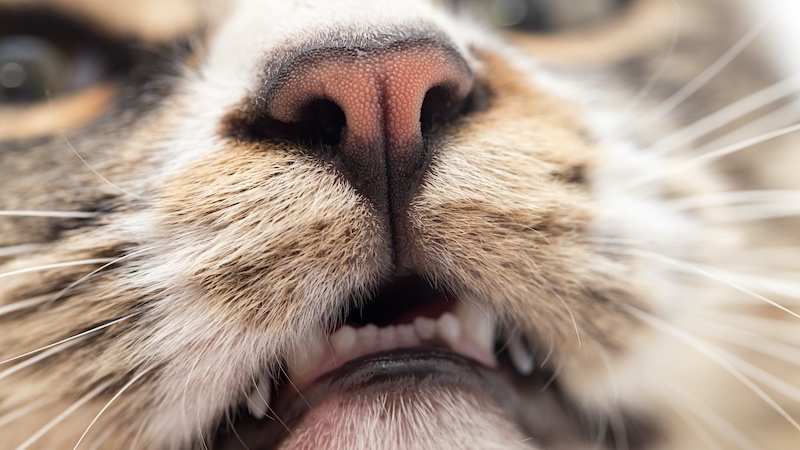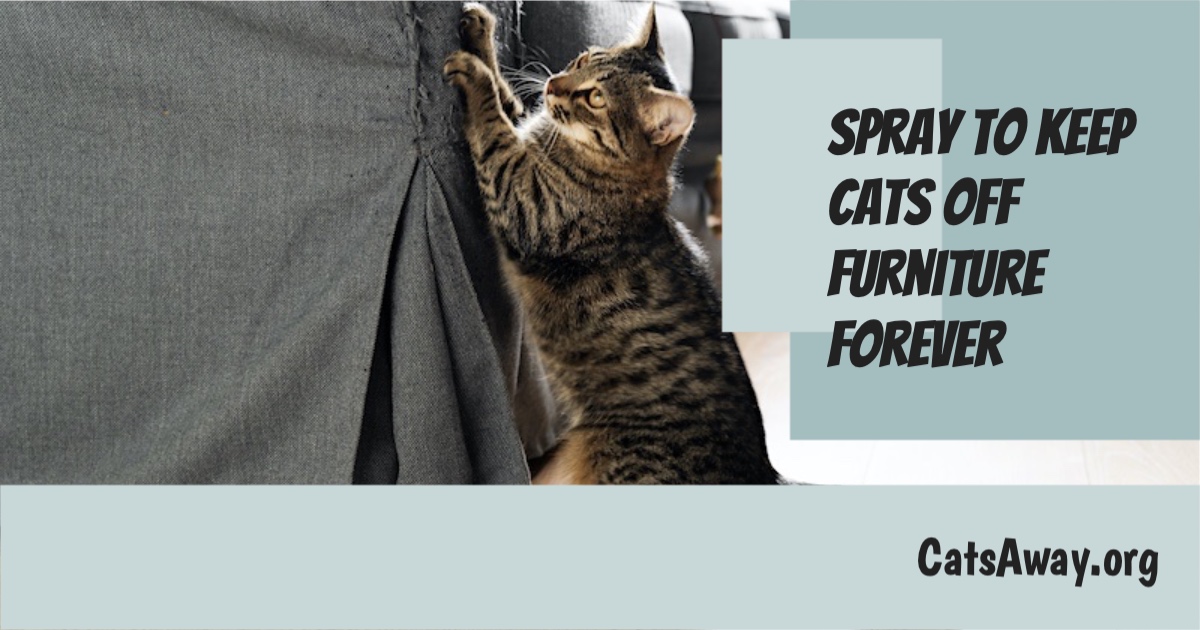We all know how troublesome cats can be, especially when it comes to keeping stray cats away from our garden or patio furniture. But did you know that a cheap household item may be the key to deterring cats?
Does Vinegar keep cats away? Vinegar is believed to be an effective and inexpensive way to repel cats from your property.
In this article, we’ll discuss whether vinegar is indeed an effective method for keeping cats away and provide some tips on how to use it correctly.
A Household Staple With Cat Deterrent Powers: Vinegar

Does vinegar deter cats is a question many cat owners have asked, and one that has an interesting answer. Vinegar is a sour-tasting liquid made from fermented ethanol and has long been used as a home remedy to keep cats away.
Most felines hate its acrid smell of but does vinegar keep cats away?
The short answer is yes, sometimes. Research shows that the smell of vinegar can deter some cats from entering certain areas in your home. Cats are naturally curious animals and some will investigate new scents.
On the other hand there is also evidence to suggest that the smell of vinegar could actually attract them to kitchen areas because it could be associated with food or other pleasant experiences.
So while the smell of vinegar may not stop all cats from entering certain spaces, it can still act as a mild cat repellent when used correctly.
Why don’t cats like vinegar?
Regular and white vinegar is known to have a pungent smell that most cats find unpleasant. The strong smell of vinegar can be overwhelming and off-putting. In addition, cats have an extremely sensitive sense of smell compared to other animals, so they are likely to be more affected by the odor than other species would be.
While some may not mind the scent of vinegar, most cats will find it particularly unappealing and avoid anything with a strong vinegary scent out of instinct.
Is Vinegar toxic to cats?
Vinegar is a natural acidic liquid that has been used as an all-purpose cleaner for centuries. It is derived from fermented fruits and grains, making it safe to use around pets and children when diluted.
Though vinegar will not harm them, using it as a way to deter cats can have mixed results. Cats are notoriously sensitive creatures and the smell of vinegar may drive them away temporarily; however, some cats may become attracted to the scent over time or develop an immunity to its effects.
Additionally, because of their curious nature, cats may find themselves investigating the source of this new smell if they come across any areas where you’ve applied it.
How To Use Vinegar As A Cat Repellent?
People have considered vinegar as a cat deterrent for centuries and even today there are commercial cat deterrents that use vinegar as the main ingredient. But how do you use vinegar as a home made cat repellent? The best method is to use it as a spray.
Firstly, mix up equal parts white vinegar and water in a spray bottle. You can also add some essential oils such as lemongrass, lavender, or citronella to the mixture if desired.
Shake the bottle well before each use and spray the solution on areas where cats tend to congregate – such as garden beds or around garbage cans – until they are lightly coated.
This will help deter cats from going near these areas. Make sure you spray the solution on the ground and not on plants or trees, as it could harm them if they come into contact with it.
Spraying Vinegar outdoors
Spraying vinegar outdoors is a popular method to deter cats away from your yard and I know plenty of gardeners who swear by it. Not only can it be an effective deterrent, but it’s also cost effective and won’t harm the cats or the environment.
Vinegar has strong acidic properties that make it an unpleasant smell for some cats and other pets. When sprayed around your yard in small amounts, the scent will act as a warning signal to keep them out of certain areas.
It may take some trial and error at first to determine how often you should spray the vinegar and how much you should use, but once you find the right combination for your needs, it can be quite effective in keeping cats away from where they don’t belong.
Spraying Vinegar Indoors
Spraying vinegar indoors is a popular way for keeping an indoor cat away from certain areas. While this pantry staple has been used for centuries as a natural cleaning solution, many pet owners are now turning to it as an effective way of deterring cats from entering certain rooms in their homes.
Does vinegar deter cats from pooping? The acidic nature of vinegar can help reduce any lingering odors caused by cat feces and this could lower the chances of them using the same spot as a toilet again.
However, it’s important to note that spraying too much vinegar can leave behind an overpowering smell and may also damage some floor surfaces.
White vinegar isn’t as acidic as regular vinegar so it might be best to try it first when using it indoors.
Before you spray vinegar in your home, be sure to test it out on an inconspicuous area first and spray in moderation for best results.
What other smells do cats dislike?
As already discussed, vinegar is not going to be successful as a deterrent against all cats. So what other home remedies to keep cats away can you try?
Cats are very sensitive to odors, and many have found success in using scented cat repellents to keep cats out of certain outdoor areas. For example, citrus scents like lemon and orange peel can be used in homemade cat repellent recipes since they find these aromas strong and unpleasant.
Coffee grounds can also deter cats because the smell of coffee is too intense for most felines. Additionally, lavender oil has also been known to repel both indoor and outdoor cats due to its strong scent.
Does Ammonia keep cats away?
Ammonia is a common household cleaner and has potent properties that can irritate the eyes and nasal passages of animals and humans alike. It’s possible that the scent may deter some cats others will be attracted to it to mark their territory so using Ammonia is not recommended.
Final Thoughts
In conclusion, vinegar may be a useful tool for repelling cats from problem areas in your home. It is cost effective and safe to use so there’s no reason not to at least give it a try.
Don’t use expensive apple cider vinegar or balsamic though, just use the cheap white vinegar for repelling cats.
If you live in a wet climate then using odors to deter cats is always a battle you are likely to lose as you will be applying vinegar spray constantly. Even with their sensitive noses, not all cats will be able to smell the diluted vinegar after a rain shower.
To maximize the effectiveness of vinegar or any other odor repellent, it should be used as part of an integrated cat management strategy that also includes other deterrents such as a motion-activated sprinkler or ultrasonic cat deterrent. Additionally, you can make sure there are no food sources in the area that would attract cats in first place.





